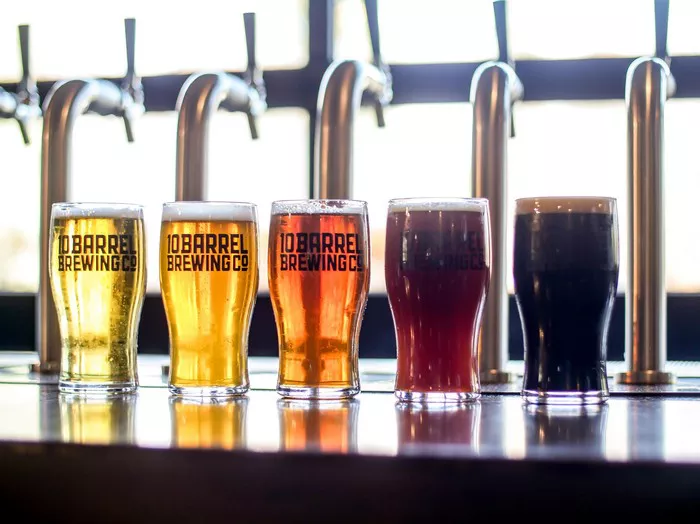Non alcoholic beer has gained popularity in recent years as more people seek alternatives to traditional alcoholic beverages. Often chosen for its similar taste to regular beer but with significantly less alcohol content, non alcoholic beer offers a beverage option that caters to individuals looking to reduce their alcohol intake or avoid it altogether. However, there are lingering questions about its health implications and whether consuming non alcoholic beer is truly beneficial or potentially harmful.
What is Non Alcoholic Beer?
Non alcoholic beer is defined as a beverage that contains very low or negligible levels of alcohol, typically less than 0.5% alcohol by volume (ABV). This minimal alcohol content distinguishes it from alcoholic beers, which generally have ABV ranging from 4% to 6% or higher. The process of making non alcoholic beer involves various methods such as vacuum distillation, reverse osmosis, or simply brewing beer with low alcohol content from the start.
Nutritional Content and Ingredients
From a nutritional standpoint, non alcoholic beer shares similarities with regular beer in terms of calories and carbohydrates but typically contains fewer calories overall due to the reduced alcohol content. It often retains the same ingredients as traditional beer, including water, malted barley, hops, and yeast. However, some non alcoholic beers may also contain artificial sweeteners, flavorings, or stabilizers to enhance taste and shelf life, which may raise concerns among health-conscious consumers.
Health Benefits of Non Alcoholic Beer
Advocates of non alcoholic beer suggest several potential health benefits associated with moderate consumption. One notable advantage is its hydrating properties compared to alcoholic beverages, making it a viable option for individuals seeking refreshment without the dehydrating effects of alcohol. Additionally, non alcoholic beer contains B vitamins and polyphenols from hops, which contribute to its antioxidant properties and may have positive effects on cardiovascular health when consumed in moderation.
Impact on Liver Health
A significant concern regarding alcohol consumption is its potential negative impact on liver function. While non alcoholic beer contains minimal alcohol, some studies suggest that even trace amounts could affect individuals with certain liver conditions. However, for the general population and those without liver disease, the negligible alcohol content in non alcoholic beer is unlikely to pose a significant risk to liver health when consumed responsibly.
See Also: How much is a case of peroni beer?
Weight Management and Non Alcoholic Beer
For individuals mindful of calorie intake and weight management, non alcoholic beer presents a lower-calorie alternative to regular beer. The reduced alcohol content means fewer calories per serving, which can be advantageous for those looking to enjoy a beer-like beverage while maintaining a balanced diet. However, it’s important to note that the total calorie count of non alcoholic beer can vary depending on brand and brewing method, so consumers should check nutritional labels for accurate information.
Potential Risks and Considerations
Despite its appeal as a low-alcohol or alcohol-free option, non alcoholic beer is not without potential risks. One concern is the misconception that it is entirely alcohol-free, which could lead to unintended alcohol consumption, especially in individuals in recovery from alcohol use disorder. Additionally, some people may experience gastrointestinal discomfort or allergic reactions to certain ingredients found in non alcoholic beer, such as gluten or additives.
Non Alcoholic Beer and Exercise Performance
Another area of interest is the impact of non alcoholic beer on exercise performance and recovery. Some studies suggest that the polyphenols in beer, including non alcoholic varieties, could have anti-inflammatory properties that may benefit athletes post-exercise. However, the hydration effects of non alcoholic beer should be considered, as alcohol, even in small amounts, can impair rehydration and muscle recovery processes.
Non Alcoholic Beer and Mental Well-being
Beyond physical health considerations, non alcoholic beer may play a role in social settings and mental well-being. It provides an option for individuals who wish to participate in social drinking occasions without consuming alcohol, reducing social pressure and promoting inclusivity. This aspect of non alcoholic beer underscores its potential as a choice that supports moderation and responsible drinking habits.
Regulatory Considerations and Labeling
In many regions, including the United States and Europe, non alcoholic beer is regulated differently from alcoholic beverages. Manufacturers must comply with specific labeling requirements to indicate the alcohol content accurately. Consumers are advised to check labels carefully and be aware of variations in alcohol content among different brands and types of non alcoholic beer to make informed choices aligned with their preferences and health goals.
Conclusion: Making Informed Choices
Non alcoholic beer offers a compelling alternative to traditional beer for those seeking to reduce or eliminate alcohol consumption while still enjoying the taste and experience of beer. Its minimal alcohol content and potential health benefits make it a viable option for various consumer preferences and lifestyles. However, like any beverage, moderation is key to maximizing its potential benefits while minimizing any potential risks. By understanding its nutritional content, health implications, and regulatory considerations, individuals can make informed choices that align with their overall health and wellness goals. As research continues to explore the effects of non alcoholic beer, ongoing education and awareness will be essential in guiding consumers toward responsible consumption practices.


